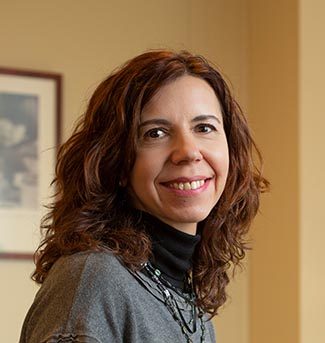Children’s and industrial products development services
Organisations use a product development process as a growth strategy in order to introduce innovative products into existing markets. This process is divided into a series of phases, from the conception of the idea to large-scale production.
Technological innovations are making it increasingly possible to produce highly diversified products that are adapted to the specific characteristics of the user, offering greater versatility to the products and a highly innovative character. In addition, market tendencies are moving towards personalised and environmentally sustainable products, in limited production series.
At AIJU we provide you with advice, offering support throughout all the phases of the development of your product, no matter whether your company develops children’s products or if it is active in an auxiliary industry with its own product.
AIJU does not intervene or engage in activities related to the design, manufacture, supply, installation, purchase, possession, use or maintenance of items covered by the ENAC scope of inspection (recreational areas and sports facilities), nor does it provide advice on these products.
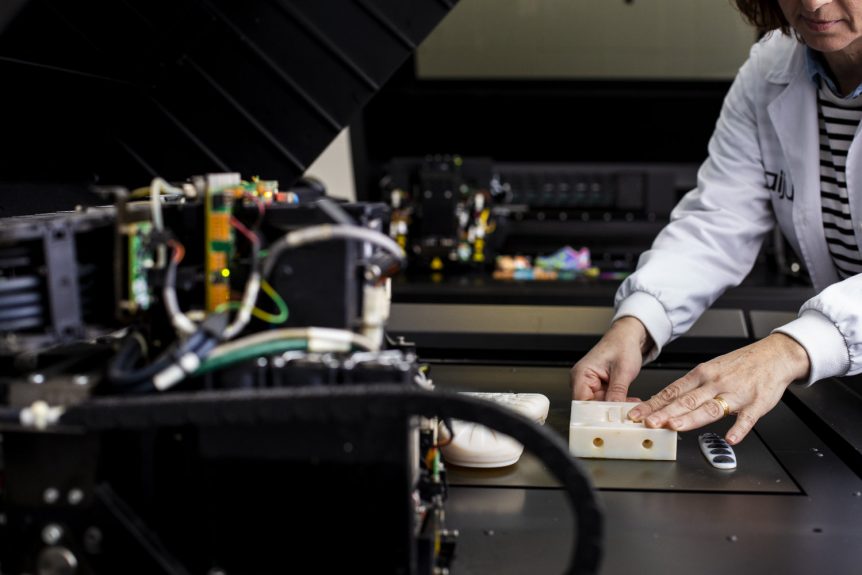
Services and solutions for the development of children’s and industrial products
We offer scanning support to digitalise any part, mould or physical model and convert it into a 3D CAD model. We also create the initial draft of the design so you can make decisions and choose ideas, as well as the industrial 3D Design of your product.
Creating prototypes makes it possible to obtain the modelling of a final product in order to validate some of its attributes. This is done right before it is rolled out onto the market, and before investing resources in its industrial production. Through our 3D printing services with state-of-the-art machinery, we can offer you functional and/or aesthetic prototypes, in metal or in plastic, as well as personalised and/or unique pieces. Additionally, you can expect a great variety of finishes for your pieces and/or final prototypes.
The aim of this service is to verify your finished product, with the final materials, before production begins. In this way, we offer you pre-series piece production services, and the possibility of obtaining prototype moulds adjusted to the required number of pieces.
Material identification allows our clients to ensure their materials match those that were agreed in the contract. It also makes it possible to detect contaminations and/or traces of other compounds, and/or validate quality aspects. In this regard, both the base material, as well as other fillers and additives of the plastic material can be identified. Characterisation makes it possible to determine the mechanical, physical, thermal, rheologic or flammable properties that the materials bring to your final product.
Obtain a material that meets your product needs, and keep up to date with the latest technological innovations. We develop new plastic formulations (bio-plastics, biodegradable plastics, plastics with functional properties, etc.), adapted to the specific needs of your market. In this way, you can stay at the forefront of the latest innovations in materials for the children’s and industrial markets. Materials can be developed both on a laboratory or on a pre-industrial scale, and for both traditional processes or for 3D printing or laser sintering. This will help you develop differentiated products.
Apply the market trends in your company. Receive a detailed analysis of your user, consumer, or client. Know how users perceive your product. Detect new gaps and opportunities for innovation.
Integrate SMART developments, digital content and other technologies into your products. Add differential value to your product with educational, therapeutic and recreational digital content.
Additive Manufacturing Technology that makes it possible to obtain replicas of specific organs and pathologies from a three-dimensional digital model acquired from a tomography (TAC/CT) or Magnetic Resonance (MR).



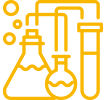


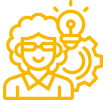
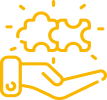
Covering more than 500 square metres, our facilities comprise a very complete “Manufacturing Lab” which has the following equipment:
Digitalisation Room:
- Coordinate measuring machines
- Laser digitiser
- Structured light / white light projection digitiser
Plastic and metal laser sintering:
- Selective laser melting (SLM)
- Plastic selective laser sintering (SLS)
- Vacuum casting using silicone moulds
3D printing laboratory:
- PolyJet 3D printing (PJT)
- 3D Printing (FFF)
- Stereolithography (SLA/DLP)
Materials testing laboratory:
- A range of measuring equipment to perform a complete characterisation of plastic materials
Process laboratory:
- Plastograph
- Laboratory scale and industrial scale extruders
- Laboratory scale and industrial scale injectors
- Extrusion blow moulding line
- Rotational moulding equipment
- Pulverising mills
Our multidisciplinary team consists mainly of industrial engineers, laboratory processes technicians, chemists and designers. Highly qualified employees who are always at the cutting edge of their art, which generates a know-how that gives great confidence to our customers.
At the AIJU R&D Studies and Projects department we also have several lines of research. These are framed within the development of new models, materials, and technologies for the development of highly functional products with great added value.
We also sit on several Standardisation Committees and related platforms:
- ISO/TC 261 Additive Manufacturing
- CEN TC 438 “Additive Manufacturing” Traditional Manufacturing Sectors Platform – PLATECMA
- BBI – Bio-based Industries: https://www.bbi-europe.eu
- EFFRA | European Factories of the Future Research Association http://www.effra.eu
- Climate-KIC | Innovation for Climate Action https://www.climate-kic.org/
- AM Platform – European Technology Platform in Additive Manufacturing http://www.rm-platform.com/
- SPIRE – Sustainable Transformation Industry https://www.spire2030.eu
